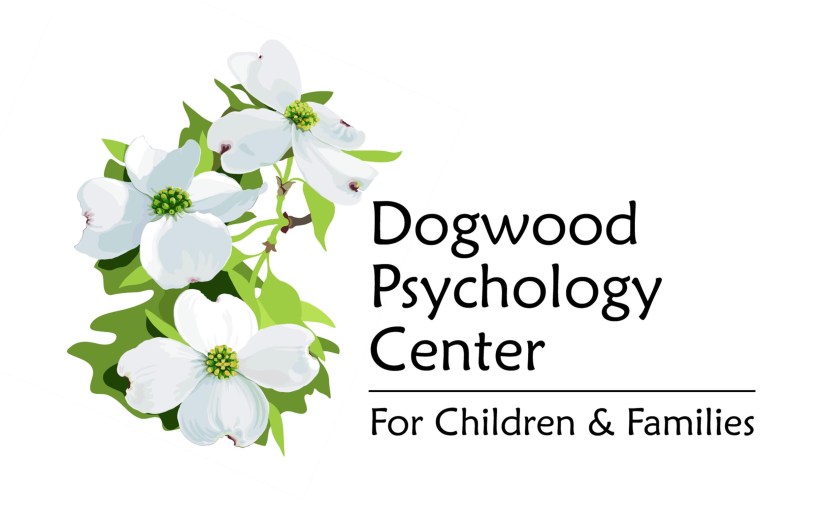October 10, 2018 marks World Mental Health Day!
At Emerge, we work with families everyday who are coping with a variety of diagnoses related to their children’s speech and language, sensory processing, and more. These diagnoses can have major impacts on a child’s (and the parent/caregiver/family’s) perception of self. They can impact daily functions and sometimes alter the goals and dreams that a family may have had. As a staff we are always looking for ways to support and develop a positive mindset and sense of self with our clients and their families. Though we are a collection of occupational and speech-language therapists, we would be doing our clients and their families a disservice we were not considering and treating the “whole child” – including being aware of their mental health. While there are some things within our scopes of practice that we can recommend and implement to promote positive mental health, we are also frequently working with and referring our families out to psychological support services.
In further efforts to think about the “whole child” and to help break down stigma, we reached out to a variety of people in our community to talk to us a little bit about mental health. Check out the post below for some great quotes, ideas, tips and strategies, and information related to maintaining your family’s mental well being. Additional resources are listed at the bottom of this post.
As a business owner and mom of 2 preschool school aged kids, there isn’t always a lot of leftover time for me at the end of the day. However, I have found that making time to exercise 3-4 times a week improves my mental health exponentially. I am a better mom, wife, occupational therapist and boss for having carved out that time to get my body moving. Also, surrounding myself with people who encourage me, support me, and lift me up, my “tribe”, helps to keep me positive.I am also a big believer in planning ahead, and have found that when I do plan ahead I can improve the mental health of myself and my family throughout the week. A few tips for planning ahead that help my family are:
- Meal planning and prepping easy meals on the weekend for the week ahead, including healthy snacks
- Packing book bags, work bags and lunch bags the night before
- Having a family calendar and reviewing with the family
- Taking 5-10 minutes at the end of the night to de-clutter living spaces for a fresh start in the morning


Rachel Bowman, PhD
Dogwood Psychology
Psychologist
We are in the midst of the fall season, and school has been in session for a while. As we progress toward the holiday season, many kids and families experience excitement and stress. Here are some tips for maintaining good mental health for your kids and family:
- One of the most underutilized interventions for preventing and treating many mental health problems including ADHD, anxiety, and depression is physical exercise. Several studies have found positive benefits of regular, vigorous exercise such as improved attention, sleep, and mood. The easiest way to fit in daily exercise is to do it as a family. Consider walking and hiking, riding bikes and scooters, and playing “old school” games (e.g., tag, Simon Says, red rover). Sometimes even short but intense bursts of exercise can pack a lot of punch. For example, before starting homework, have your child do as many jumping jacks as they can in one minute or do push-ups. Incorporate these mini-movement breaks during homework, especially as frustration or boredom arises.
- Another important tip for good mental health is making sure that your kids get a good night’s sleep. Poor sleep causes problems with learning, memory, attention, mood, and anxiety. Try to keep your child’s bedtimes and wake-up times consistent, even on weekends. An hour before bed, everyone in the family should power off all electronic devices. Instead of screen time, have your child read, draw, build with Legos or with other construction toys, or talk about things that went well that day or things for which you are grateful. Develop a consistent bedtime routine that you do every night of the week. Remember – no electronic devices in children’s bedrooms!
- Finally, consider quality over quantity. In our busy, over-scheduled society, it’s easy for us and our kids to become overwhelmed. Don’t feel guilty about allowing your child and family “down-time” to relax, play, and have fun. Only include those extra-curricular activities that bring joy and happiness for your child. Schedule a few minutes of family time each day to do something fun and positive, such as playing a board or card game or working a giant puzzle. You’ll reap the benefits of improved relationships and closeness.
If you are concerned that your child’s behavioral and emotional problems are causing significant problems in his or her ability to function at home, school, and in other settings, please contact a mental health professional. It is important to intervene when children are young and when problems are just beginning. Effective mental health and behavioral interventions can make a positive impact for your child and family.
Lisa M.
Parent of 3 children
We try to check in with our children on a somewhat regular basis using something we call “Brave, Kind, Fail.” Everyone in the family, including us as parents, shares something they did recently that they thought was brave, something kind they did, and something they failed at. Talking about our own failures with the kids, and showing that it’s okay, helps to normalize it for them.


Here are a few of my favorite mental health-related quotes (not originals from me!):
- There are no perfect parents, and there are no perfect children, but there are plenty of perfect moments along the way.
- Friendly reminder that “doing your best” does not mean working yourself to the point of mental breakdown.
- You can’t help others without helping yourself. You can’t pour from an empty cup.
- Choose every single day to forgive yourself. You are human, flawed, and most of all worthy of love.
- You’ve gotten through every bad day you didn’t think you could get through.
- Asking for help is sometimes the bravest thing you can do.
Additional Resources
The National Alliance on Mental Illness:
The nation’s largest grassroots mental health organization. They have a TON of resources about ways to learn more about mental illness and mental health, get involved, and find support.
World Health Organization
http://www.who.int/mental_health/en/
An international organization dedicated to global health. They have a page specifically dedicated to mental health with access to evidence-based research, policies, services, and more!
Dogwood Psychology Center for Children & Families PLLC
Rachel Bowman, Ph.D. ~ Licensed Psychologist
http://www.dogwoodpsychology.com/
A local resource! Rachel Bowman provides both diagnostic and therapeutic services for both children and families with autism spectrum disorders, intellectual disability, developmental delays, genetic disorders, ADHD, disruptive behavior disorders, and anxiety disorders. Fun Fact: Rachel Bowman has a special co-worker, Gunnar! He is a retired racing greyhound and a certified canine good citizen who lends a paw during some therapy sessions.
Greenleaf Psychological & Support Services
https://www.turntogreenleaf.com/
Another local resource! Greenleaf Psychological & Support Services provides therapeutic services and evaluations for individuals, children, adults, couples, and families. They also provide CogMed training, workshops and group services, telestherapy, and life coaching.
If you are concerned that your child’s behavioral and/or emotional well being please don’t hesitate to reach out to a mental health professional! Let’s work together to break the stigma and have more open discussions about mental illness and well-being!

0 Comments